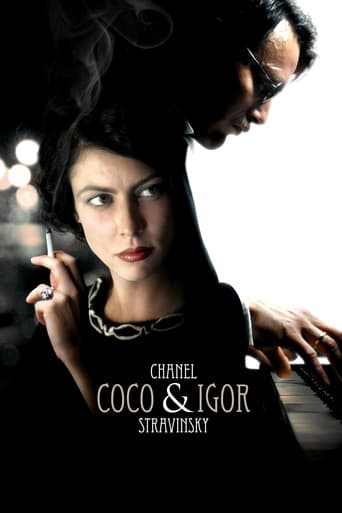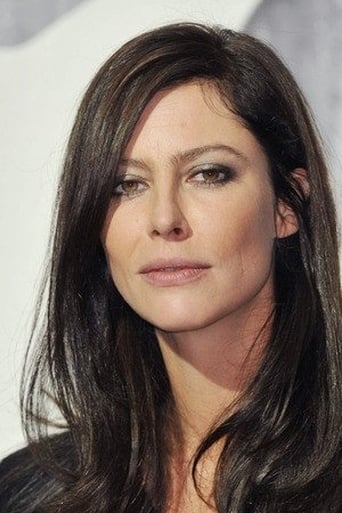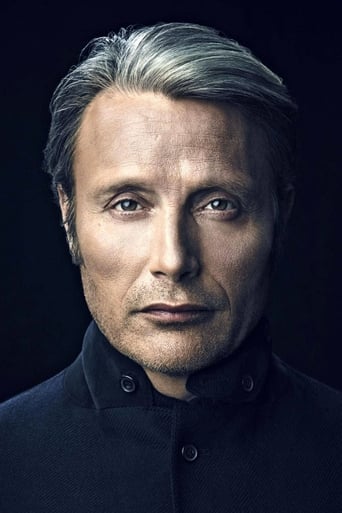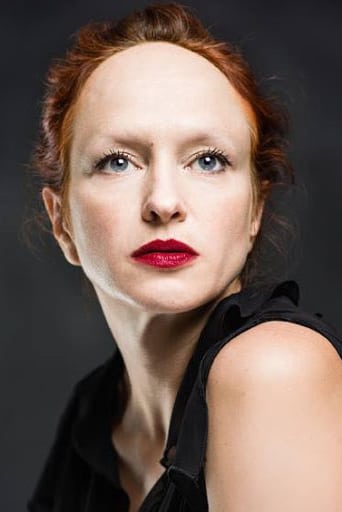Claysaba
Excellent, Without a doubt!!
GarnettTeenage
The film was still a fun one that will make you laugh and have you leaving the theater feeling like you just stole something valuable and got away with it.
Arianna Moses
Let me be very fair here, this is not the best movie in my opinion. But, this movie is fun, it has purpose and is very enjoyable to watch.
Guillelmina
The film's masterful storytelling did its job. The message was clear. No need to overdo.
secondtake
Coco Chanel and Igor Stravinsky (2009)It begins with the shocking (at the time) premier of the 1913 Russian composer Igor Stravinsky's great ballet, "Rite of Spring," that resulted in a minor riot in the theater (police were called, people were out of their seats and shouting). In a way, this recreation justifies the film right there--it's a bold and believable staging of the original, which has huge importance in the history of music and dance.Then there is a party after the war, with typical early 1920s abandonment. A new era has arrived, and Stravinsky and Chanel meet.The rest might seem to be history, but it's not. The whole rest of the film is really fiction, overall, a supposed affair between the two, and the supposed results of it in their work (Chanel No. 5 and some of Stravinsky's middle period works). It's a slow unfolding, in part because there is little to work with. The first half hour is made up of just two scenes (the ballet and the party). Then there are mostly quiet and upscale domestic situations, some intimacies, some quiet times between. The period details are pretty wonderful, and the filming is respectfully beautiful, much like a Merchant Ivory film (which might be set in the same general period). Acting? This is a puzzle. Both Chanel (French actress Ann Mouglalis) and Stravinsky (Danish actor Mads Mikkelsen) play everything with painful restraint. Who's to say exactly what these people were like, but surely the music is nothing if not crazy for the times (and beautifully crazy, for sure), and the fashions were nothing if not radical (and beautifully so)? But things develop as if everyone is psychotically shy and inhibited.Most of you know there was another Coco Chanel movie released this same year, "Coco before Chanel," about the young woman's life before her fame, and in a way, the Coco there played by Audrey Tatou makes more sense. That movie was imperfect, too, and it might be said that between the two, a glimpse of the real woman might be possible, which is in a way remarkable enough. The addition of Stravinsky and his music is compelling on an artistic level, but not a dramatic one. The movie, in its own way, tries to be romantically dramatic. The camera moves around people as they speak, and follows them into rooms and around corners. The music (mostly Stravinsky's) is vivid and rich (and Modern), and the sets are filled with plain old prettiness--wallpaper and light through doorways and a room full of flower petals (leading, we find out, to perfumes). It's all a great place to end up for an evening.If only the company were more interested, and interesting.
Dharmendra Singh
Anyone who presumed that this film would be a follow-on from 'Coco before Chanel', Anne Fontaine's endearing, rags-to-riches depiction of Gabrielle 'Coco' Chanel, would be mistaken. This film is director Jan Kounen's attempt to portray Coco how she really was: a mean-spirited, conceited femme fatale.Only the avant-garde artistry of Igor Stravinsky's music is enough to mollify Coco (Anna Mouglalis). The Russian composer's controversial work repels most for being too audacious and violent, but it entrances her, and after the Russian revolution leaves Igor and his family penniless, Coco invites them to live with her. Igor accepts and thus begins a cataclysmic affair.What begins as a 'Remains of the Day'-type attraction – where Anthony Hopkins and Emma Thompson were at pains to disclose their true feelings for each other and could only do so through knowing glances – very quickly descends into a sex-crazed love affair rivalling the one in 'Last Tango in Paris'.A subject you can usually trust French filmmakers with, however, what's missing from the plentiful love scenes between the two is, frankly, love. In fact, their entire relationship is rather curious. It's redolent of the relationship a drug addict has with drugs: It's the feeling the substance gives that's sacrosanct, not the substance itself.I was unmoved by what I believed should have been an intense performance for the part of Igor (Mads Mikkelsen). It is staid and lacklustre, interrupted by the occasional paroxysm when he is writing or playing music. The filming of Stravinsky's seminal piece, 'The Rite of Spring' in the grand Champs-Élysées theatre (as in actuality) is very impressive: the suspense, drama and sheer creepiness convince you that you are seeing the spectacle for real.It may be reasonably assumed that Coco was purely a product of her insular background - provincial, orphaned, raised by nuns - but she is never worthy of pity. The only person who deserves this is Igor's wife, Katherine (Yelena Morozova). Her characterisation of a powerless woman who sees her husband slip away from her inch by inch is so full of pathos that it leaves you contemplating whether to buy a bottle of Chanel No. 5 ever again.For all her brutality, though, there's a wonderfully dainty scene where she formulates her signature fragrance. As with everything else, she's very pernickety and it's only after playing Goldilocks that she arrives at the correct blend of the 80 ingredients.Asked if she ever felt guilty for her deeds, Coco simply says 'No' unbearably cavalierly, which left me wondering: If she never had any humanity for herself, why should we have any for her?www.scottishreview.net
Bob Taylor
Anna Mouglalis is very thin, Mads Mikkelsen has wonderful cheekbones and they do not convince me that they are playing Coco Chanel and Igor Stravinsky respectively. The other actors, with the exception of Grigori Manukov as Diaghilev, left no impression on me at all. Surely Chanel had more passion, more anger in her than we see in Mouglalis; surely Stravinsky made more attempts to assert himself with the domineering Chanel than Mikkelsen does here.I was left with a great regret that the great masters of cinema have gone, the directors that were able to fashion material like this into art: Visconti, Losey, Ophuls.
jdesando
If you think Audrey Tautou's Coco in Coco before Chanel is a restrained performance, Anna Mouglalis' Coco in Coco Chanel and Igor Stravinsky will seem downright glacial. But not cold in a romantic sense, just careful and controlled as you might expect from the iconic head of a fashion house and perfume.Then again, Stravinsky, despite his iconoclastic Rite of Spring presented in its disturbing debut, is almost as glacial and controlling as Coco. Their love scenes are pretty as a picture, yet that's the point—they are a metaphor for the detached heroes playing at love. The film is inaccessible if you want to experience the subjects' passions in depth but satisfying if you wish to see the sacrifice these 20th-century monuments made in their personal lives for their creations.The real strength of this biopic is in the production design and cinematography, a triumph of black and white idolatry in a muted color envelope. The architectural rendering of Coco's obsession with black and white, right down to white doors with black borders, is unforgettable, making Igor's tight fitting clothes and equally stiff glasses counterpoint to the elegantly reserved Coco. The estate, autos, and concert scenes are so realistically wrought as to make you think you were there.The third act is a disappointment despite attempts to connect the heroes with their elder years. Well, maybe that's the point—cold is a cold does, tribal, pagan rites don't always end up well with cold monochromatic passion. However, the film manages to make it all seductive.It's not easy to enter this closed world of fashion and composition—Igor's wife Katarina (Elena Morozova) and her children are mere accessories in the tight drama between Coco and Igor. However, the principals are so carefully controlled that even we the film spectators are outsiders






